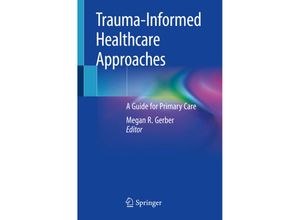Interpersonal trauma is ubiquitous and its impact on health has long been understood. Recently
however the critical importance of this issue has been magnified in the public eye. A
burgeoning literature has demonstrated the impact of traumatic experiences on mental and
physical health and many potential interventions have been proposed. This volume serves as a
detailed practical guide to trauma-informed care. Chapters provide guidance to both healthcare
providers and organizations on strategies for adopting implementing and sustaining principles
of trauma-informed care. The first section maps out the scope of the problem and defines
specific types of interpersonal trauma. The authors then turn to discussion of adaptations to
care for special populations including sexual and gender minority persons immigrants male
survivors and Veterans as these groups often require more nuanced approaches. Caring for
trauma-exposed patients can place a strain on clinicians and approaches for fostering
resilience and promoting wellness among staff are presented next. Finally the book covers
concrete trauma-informed clinical strategies in adult and pediatric primary care and women's
health maternity care settings. Using a case-based approach the expert authors provide
real-world front line examples of the impact trauma-informed clinical approaches have on
patients' quality of life sense of comfort and trust. Case examples are discussed along with
evidence based approaches that demonstrate improved health outcomes. Written by experts in the
field Trauma-Informed Healthcare Approaches is the definitive resource for improving quality
care for patients who have experienced trauma.



